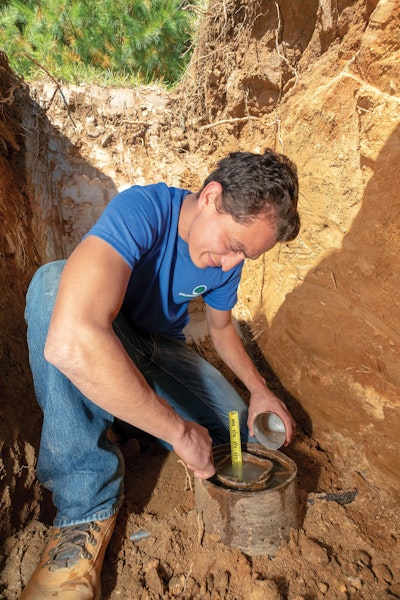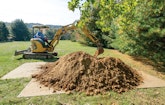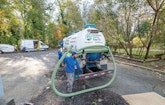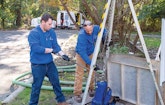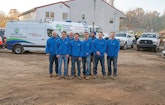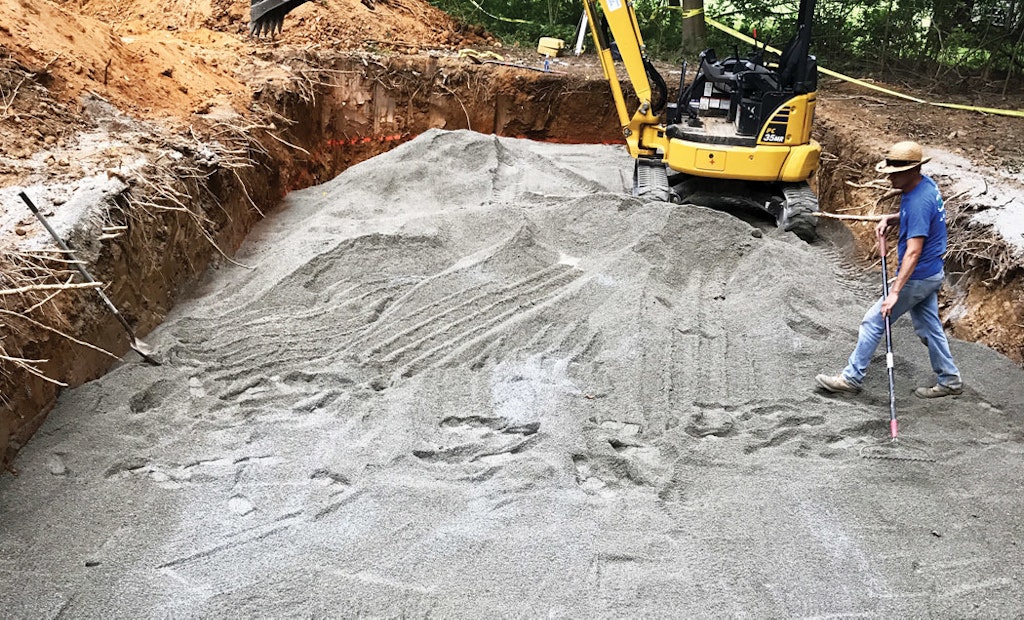
Eliud Barillas Anaya rakes out a subsurface bed consisting of 2 feet of sand and 1 foot of crushed stone and perforated pipe. The excavator is a Komatsu PC35. (Photo courtesy of Delaware Valley Septic, Sewer & Storm)
For Delaware Valley Septic, Sewer & Storm, a typical onsite system installation serves a home with five to eight bedrooms, plus ancillary structures, often with a pool and tennis court, usually with elaborate and costly landscaping.
That means large systems, of course, but also...
